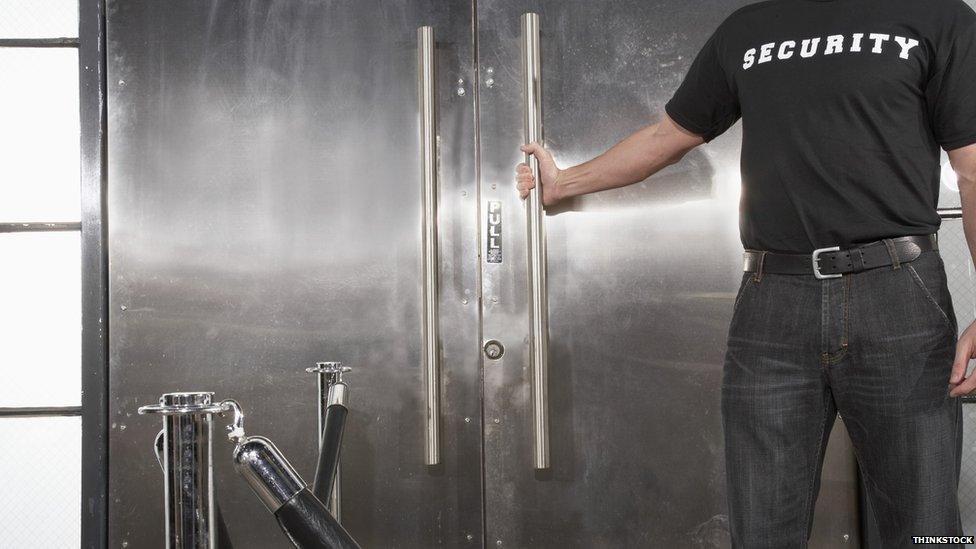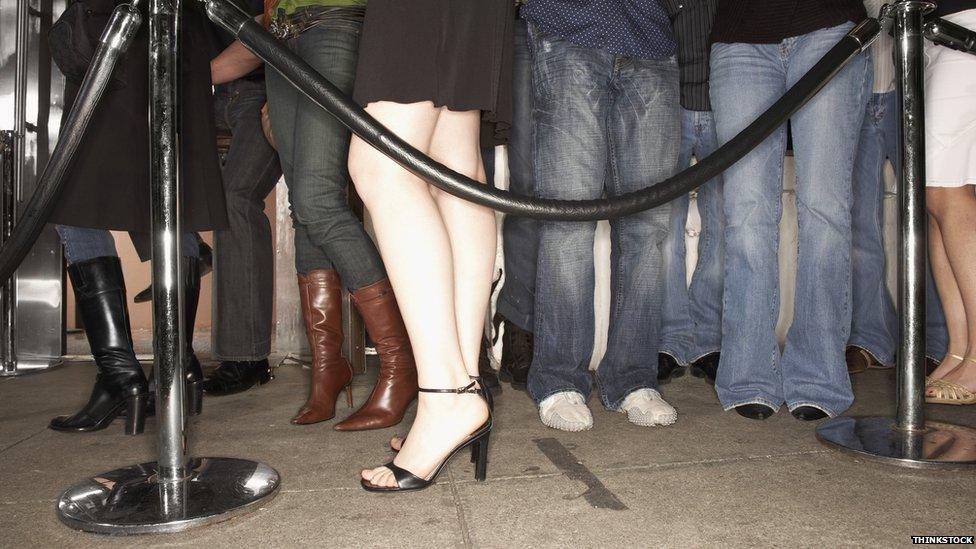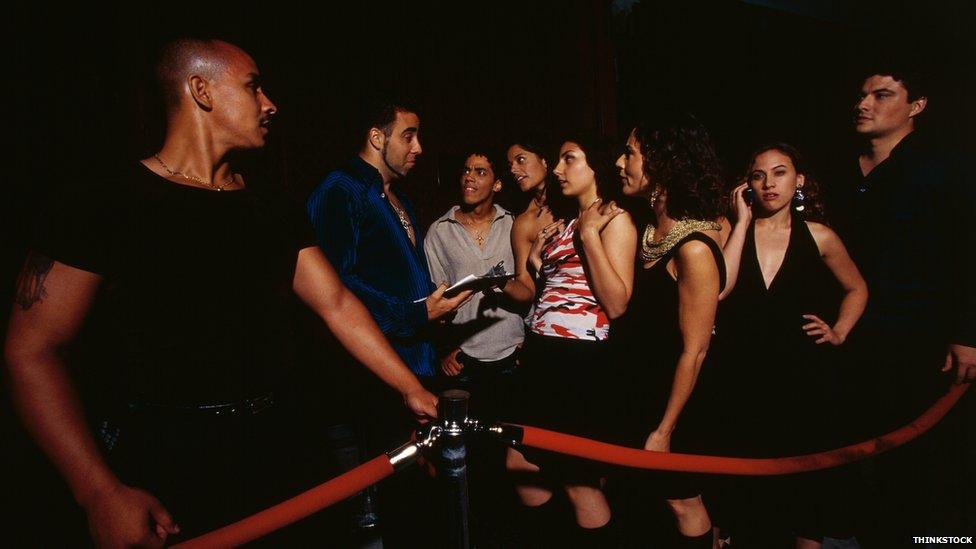These are the rights you have when you approach a nightclub door
- Published

After a group of women claim they were turned away from a nightclub for being "too dark" and "overweight" we look at what rights you have on the door.
It is hard to pin down the rules on what a club entry policy can specify.
Door staff should be registered with Security Industry Authority, which regulates, provides licences and training.
Some organisations offer guidelines on certain aspects of managing doors but ultimately clubs don't have to sign up.
So here is where you stand.
Equal rights
First and foremost, it is against the law in the UK to treat a person worse than someone else because of their skin colour.

The Equality Act of 2010 says that when someone provides you a service, even if you don't pay for it, you must not be discriminated against because of race.
It also stops discrimination on the basis of "protected characteristics" such as disability, sex, gender reassignment, sexual orientation, age and religion.
If you feel that you have been unfairly discriminated against then you can seek help from the Equality Advisory Support Service, external.
You may be able to take them to court and claim damages.
"In 2010 we did have a case based on race and sex and they recovered £15,000 damages and their court costs," equality lawyer Ciaran Moynagh told Newsbeat.
Dress code
When it comes to aspects like appearance or dress code, then the Equality Act stops applying and it becomes more difficult to pin down where you stand.
There are no industry-wide rules that clubs have to follow - instead they can create their own specific policies.

"Clubs if they don't like the look of you, don't like what you're wearing, can refuse you entry," Moynagh explained.
"Some of these clubs have dress codes, or a reputation to uphold and try to claim to be exclusive, so they will make decisions on your appearance."
A policy that says "no trainers" is easy to understand and applies to men and women.
So long as it is publicised as a club-wide standard, rather than just said to certain people, then it is allowed, because it applies to everyone equally.
A doorman saying a female club-goer must be wearing heels or a skirt may be discriminating against her under the Equality Act.
Alcohol consumption
The Licensing Act 2003 means that door supervisors (who prefer not to be called bouncers, btw) and other club staff have a responsibility not to allow alcohol to be sold to a person who is already drunk.
So they have the right to refuse entry if a person is drunk and disorderly.
Which means if you turn up to a club already having had a few too many, you're unlikely to win an argument if you get turned down.
Age
The act also restricts the sale of alcohol to people aged 18 or over and suggests implementing a "Challenge 21" or "Challenge 25" policy, where identification is required by anyone thought to look under these ages.
Identification in these cases must be photographic and have a date of birth and a hologram - so you'll need to bring your passport, driving licence, or a PASS (Proof of Age Standards Scheme) card.
Groups
"Sometimes clubs are reluctant to allow groups of people in and that's based on security and health and safety regulations," Moynagh said.
"If the club's reaching maximum capacity, or they believe a group may be a risk, or too rowdy, then they may claim that's a health and safety concern."
Listen to Newsbeat's special programme, external
Follow @BBCNewsbeat, external on Twitter, BBCNewsbeat, external on Instagram, Radio1Newsbeat, external on YouTube and you can now follow BBC_Newsbeat on Snapchat